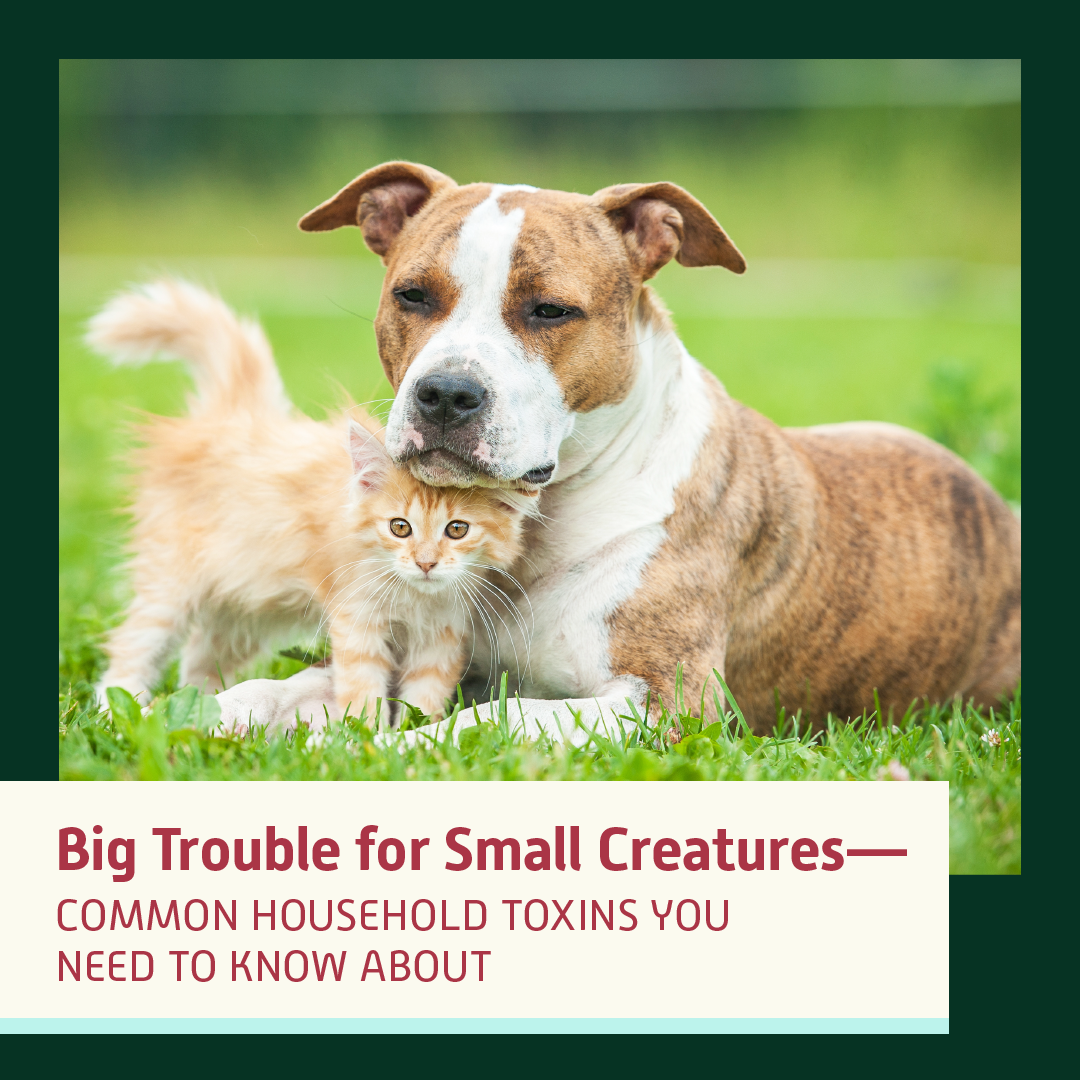Our pets are naturally curious, and any pet owner knows they can excel at getting into things they shouldn’t! Most dog owners know that chocolate means trouble for pups, and cat owners are likely already aware of the dangers of lilies—but there are more hazards lurking in your house than you might think. Here’s a list of common household items that can pose a threat to pets. Some of them may be a surprise!
- Human medications and supplements. Prescription medications can be extremely dangerous for animals, and common OTC meds such as ibuprofen and naproxen can cause acute kidney failure. Keep all human meds well out of paw’s reach!
- Veterinary medications. These are often flavored to make them enticing to a pet, which is nice when it comes to pill-giving time but a bit of a hazard otherwise. Keep these in a secure area when it’s not time to dispense them.
- Food items. Delicious to us, possibly deadly to them! Keep the following away from your furry friend:
- Chocolate
- Xylitol (often found in sugar-free gum)
- Macadamia nuts
- Grapes and raisins
- Onions
- Garlic
- Alcohol
- Caffeinated drinks
- Raw yeast dough
- Raw or undercooked meat
- Rodenticides and insecticides. Even if the box says “pet safe,” these products contain substances that can be as deadly to your pet as they are to the critters you want to eliminate.
- Garden products. Fertilizers pose several potentially deadly threats to pets, from toxicity to GI blockages. Be particularly vigilant of products containing fish, bone, or blood meal, as these can be especially enticing.
- Plants. Common plants that are toxic to pets include:
- Autumn crocus
- Azalea
- Cyclamen
- Daffodils
- Dieffenbachia
- Hyacinth
- Kalanchoe
- Lily of the valley
- Lilies
- Oleander
- Sago palm
- Tulips
- Garage and automotive products. Antifreeze is extremely hazardous to animals, but things like oil, gasoline, paint, and solvents pose a danger too.
For an in-depth list of substances that are poisonous to our pets, please consult the ASPCA Animal Poison Control website.
If you suspect your pet has ingested something poisonous, call us immediately at (760) 729-3330.
For 24/7 assistance, please call the ASPCA Animal Poison Control Center at (888) 426-4435.

